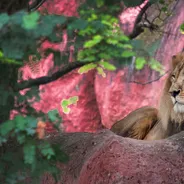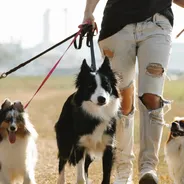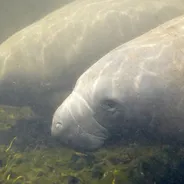A tiger has tested positive for coronavirus at New York Zoo. This is the first time that an animal has been diagnosed with COVID-19 in the US.
The incident took place at the Bronx Zoo, and happened to a four-year-old Malayan tiger, Nadia. News of the big cat's diagnosis was confirmed by the National Veterinary Services Laboratory in Iowa, the BBC reports.
Nadia, as well as a number of big cats, are believed to have contracted the virus from an asymptomatic zookeeper.
This man reveals his symptoms of coronavirus:After exposure to the unidentified employee, the tigers began to show symptoms of the virus such as a dry cough.
Paul Calle, the chief veterinarian at the zoo, told Reuters: "This is the first time that any of us know of anywhere in the world that a person infected the animal and the animal got sick."
This comes after a number of pets have allegedly tested positive for the virus, despite there being no evidence that animals can contract or spread COVID-19.''
"We tested the cat [Nadia] out of an abundance of caution and will ensure any knowledge we gain about COVID-19 will contribute to the world's continuing understanding of this novel coronavirus," the zoo said in a statement cited by the BBC.
In addition to Nadia, her sister Azul, as well as another two tigers, showed symptoms of the virus, and they are all expected to make a full recovery.
Until then, they will be under close observation because it is not known how COVID-19 affects big cats.
As well as a dry cough, the tigers had a decrease in appetite, but "are otherwise doing well under veterinary care and are bright, alert, and interactive with their keepers". The BBC reports that it is not known whether the other tigers will be tested.
"Our cats were infected by a person caring for them who was asymptomatically infected with the virus or before that person developed symptoms," the zoo said.
All zoos in New York, which is the epicenter of the US outbreak of the virus, have been closed since March 16.
At the time of writing, there have been 1,276,302 cases of the novel coronavirus and it has claimed 69,527 lives globally, per the John Hopkins University Coronavirus Resource Center.












